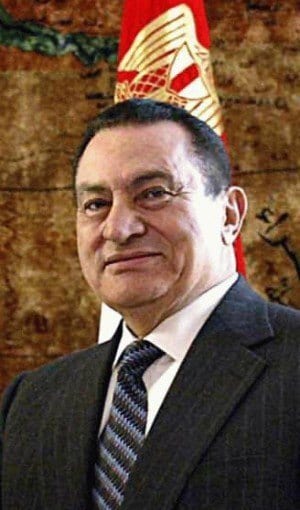
Hosni Mubarak’s medical conditions worsen upon a sentence to life in prison
Former Egyptian President Hosni Mubarak, 84, is suffering from depression upon his sentence to life in prison after having 850 protestors murdered. Specialists took him out of the prison’s intensive care unit (ICU) to a more equipped hospital as Egypt’s turmoil is precedent to the increasing danger of Hosni Mubarak’s condition.
Doctors struggled to transmit oxygen to Mubarak five times amidst the President’s high blood pressure, shock and severe depression.
The president had been to the Tora prison ICU when he suffered from pancreatic cancer, but he was soon transferred to the military hospital as he was not fit to wait for trial in prison. This time, Hosni Mubarak begged for the same treatment. A decision has not been made for his possible hospital transfer.
Just before Hosni Mubarak’s admission to the ICU, protestors convened in Tahrir Square to protest the acquittal of six police officials charged for having protestors murdered last year.
A security official said Hosni Mubarak “refuses to talk with doctors because of his severe depression, which complicates their work.”
Hosni Mubarak’s son, Gamal, is accused of corruption and was transferred to the Tora prison to be close to his father. People in Egypt are skeptical and believe the press aims to grant the ruler some sympathy, despite his regime of panic, according to AFP.
Prime Minister Ahmed Shafiq’s second place victory over liberal candidates fed the uproar in Egypt, and he will compete in the Muslim Brotherhood against Muhammed Morsi June 16 and June 17. Egyptians fear that Shafiq’s possible reign could only be a continuation of Hosni Mubarak’s and hope that a Morsi victory at the runoff will bring democracy.
But according to The Times-Picayune, Egypt’s highest court is now challenging the legitimacy of Hosni Mubarak’s officials, and it may pass an “isolation law,” which would bar those officials from running for president.
Supreme Constitutional Court spokesman Maher Sami told The Associated Press, “The court is responsive to public issues and that is why it is rapidly working to settle the case.”
“I support Morsi because he is a revolutionary candidate, not a Muslim Brotherhood candidate,” said Mohamed Yousef, an al-Azhar cleric. “The Muslim Brotherhood will not get enough votes unless all Egyptians unite.”
And, Sina Esaam, 17, and a protestor in last year’s revolt, argued that Morsi is just trying to make an innovative image of himself.
Egyptian military officials assigned political parties to create a new list of criteria for the 100-member panel; otherwise, military officials will restore the 1971 constitution, according to The Washington Post.













